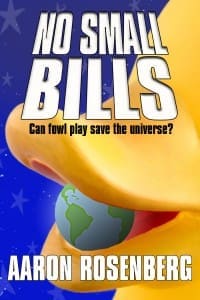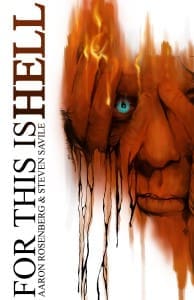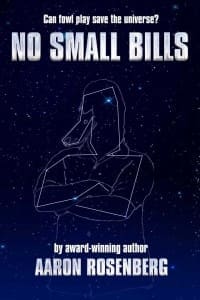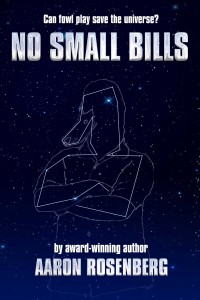My friends can tell you that I can be a funny guy at times. Not all the time, maybe, but who is? Still, I manage a few zingers now and again, and I’ve been known to make people’s heads explode—not literally, that’d be gross—and to make people snarf their drinks from time to time.
But, before No Small Bills, I’d never written funny.
 Not flat-out funny, at least. I’d done wry, certainly, and over the top, and slightly tongue in cheek. I’d done amusing moments and funny lines—hell, I wrote two Eureka novels! But I’d never written anything that was just utterly goofball off-the-wall silly funny.
Not flat-out funny, at least. I’d done wry, certainly, and over the top, and slightly tongue in cheek. I’d done amusing moments and funny lines—hell, I wrote two Eureka novels! But I’d never written anything that was just utterly goofball off-the-wall silly funny.
When I sat down to write a new, wholly original novel a few years back, however, I flipped through my catalog of story ideas—most writers have them—and DuckBob was the one that jumped out at me. And it was clearly going to have to be funny. After all, he has the head of a duck—it was either going to be an insanely silly book or a deep philosophical treatise told through surreal metaphor. Hitchhiker’s Guide to the Galaxy or The Metamorphosis.



